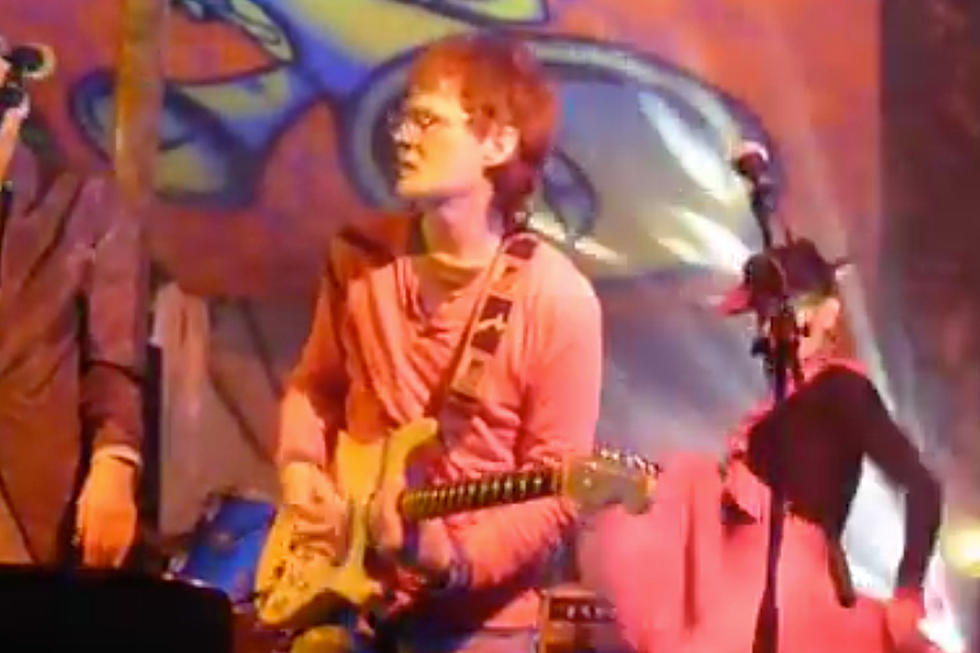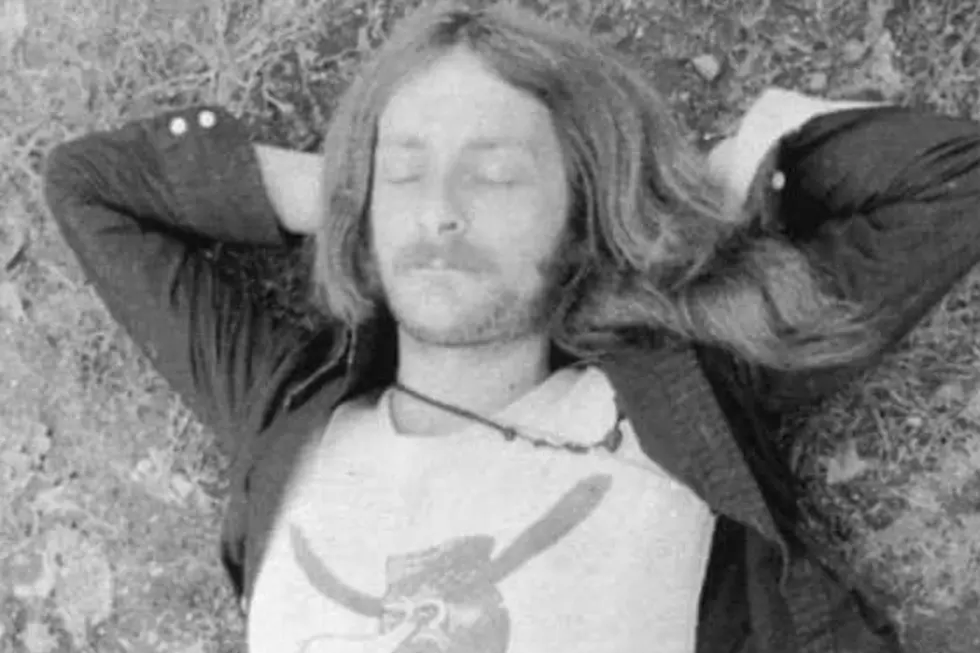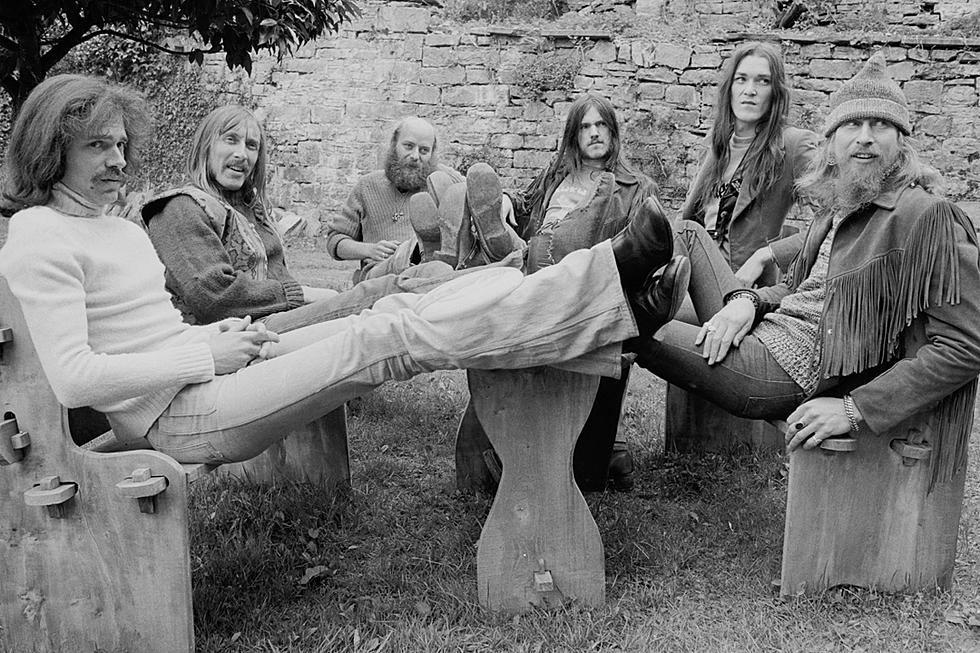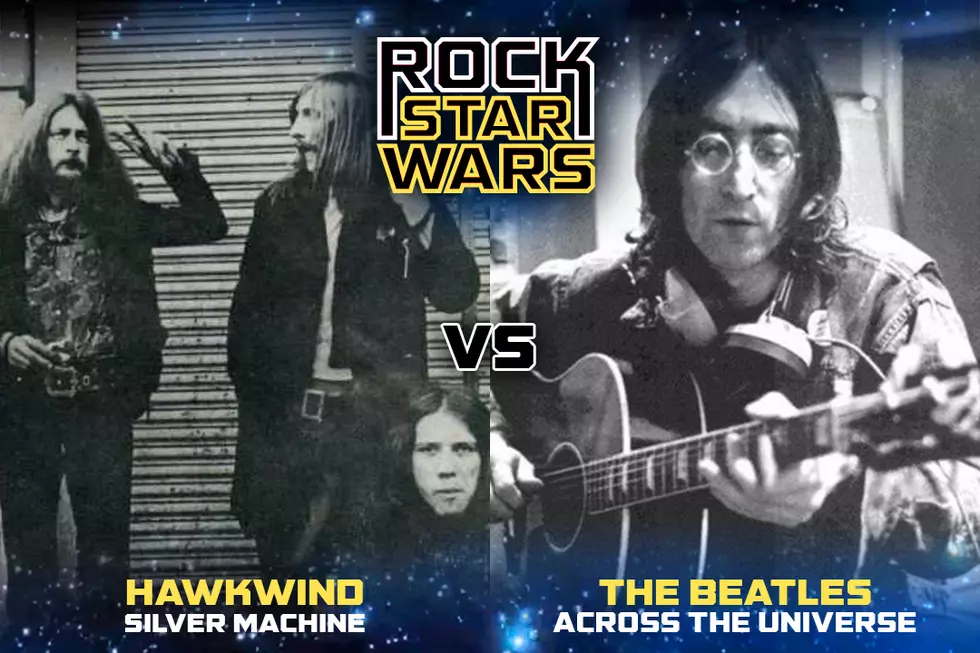
40 Years Ago: Hawkwind Release ‘Hall Of The Mountain Grill’
With their fifth album, 'Hall of the Mountain Grill,' which was released on Sept. 6, 1974, Hawkwind had the unenviable task of following up what is, perhaps, the definitive Hawkwind album, the classic 'Space Ritual.' That album, recorded live, presented the band in full flight, in their natural habitat, something their previous three studio efforts were unable to do fully. On 'Hall of the Mountain Grill', produced by the band along with Roy Thomas Baker and Doug Bennett, Hawkwind became more comfortable in the studio, and make it work to their advantage, with what may be their finest studio effort.
Though the band had recently lost the services of both Dik Mik (on electronics) and Robert Calvert as lyricist, Dave Brock and company were more than up for the new challenge. "'Hall of the Mountain Grill' is the best studio album I did with Hawkwind," bassist Lemmy said in the Carol Clerk book 'The Saga of Hawkwind.' "It was quite to the front. I think it stands the test of time."
The man has a point. The album ebbs and flows perfectly as the harder-edged rockers flow seamlessly among the spacier numbers. Things kick off with a genuine classic, 'The Psychedelic Warlords (Disappear in Smoke),' From the opening riff through the catchy chorus, it's a welcome invitation to the LP. Their trademark surging riffage is front and center, awash in psychedelic colors. Just as the embers are still glowing from its fire, the band sail off into more ethereal terrain with 'Wind of Change.' New recruit Simon House, formerly of the band High Tide, shines on both Mellotron and violin, adding a crucial element to the band's sound and somewhat taking them out of their comfort zone, adding a new sonic color to the mix in the process.
Written by Nik Turner, 'D-Rider,' puts the riff back in control, this time, however, with House's violin weaving in and out. The entire track sounds like a marriage of Pink Floyd and Roxy Music, while remaining 100 percent Hawkwind at the same time. The phasing as well as the ornamental synthesizers of Del Dettmar add to the drama. 'Web Weaver' ends side one, and moves from slightly spacey to a real rollicking tune in all of its three minutes. Some nice guitar work from Dave Brock seals the deal.
Side two gets immediately into high gear with the classic, 'You Better Believe It.' Written by Brock, it is quite possibly the highlight of the album. From its squiggly synth intro to the powerhouse riff, it's all systems go to set sail for the stars. That eternal, driving rhythm Hawkwind so often utilized is front and center. Meanwhile, Lemmy gets the vocal spotlight on the chorus, which is so simplistic, it's genius. One line, the song title, in the hands -- well, mouth --of Lemmy, and it's the most crucial element of the song. The band veer off into outer space, but that pummeling rhythm is as grounded as the rest is skybound.
The album's title cut is up next. Written by Simon House, it is the most out-of-character tune on the album. Two-and-a-half minutes of piano, synths and violin create a beautiful landing platform for the band at this point in the album, just in time for the next number, 'Lost Johnny.' Sung by Lemmy, and co-written with friend, author, fellow hell raiser and former Deviants front man Mick Farren, it's pure and simple rock and roll. The song would have a long life, being recorded later by both Hawkwind as well as Farren for a solo single. As good as this is, the later versions offer more. "I didn't really like it that much," Lemmy said of 'Lost Johnny.' "It was crap, the Hawkwind version. Only Del Ditmar and Simon King stayed in the studio with me. I did all the bass and guitars and vocals myself." The Motorhead and Farren versions take any psychedelic overtones out of the mix, and plant it firmly in the rock and roll side of things.
'Goat Willow' is another short, out-of-step bridge from one rocker to another that sounds less like Hawkind, and more like Can or Faust. The minute-and-a-half piece sets things up for the album's closer, 'Paradox.' Once again, the riff is the calling card here, with those simple, but highly effective, Hawkwind harmonies riding atop the riff. The band fall in one-by-one, gradually building to full-on rock mode. Guitars slither, Mellotron glides and rhythm section of Lemmy, and drummer Simon King, drive it home. Lemmy's bass pushes the whole thing, and his significance in the sound of the band cannot be understated. Eventually, the song winds back around to where it began for a perfect ending to the album.
Drummer Simon King shared his excitement over the album with Geoff Barton of Sounds magazine. “The ‘Doremi’ album lacked production. It sounded as if all the bass was turned off, your amp wasn’t working properly and your stereo was bunged up all at the same time. I wasn’t really happy with the ‘Space Ritual’ either. But the new one – I’m quite pleased with it. I think that it’s something we haven’t done before."
Though Hawkwind were never critics' darlings, 'Hall of the Mountain Grill' turned more than a few heads that had previously shied away from the band. In a review in the New Musical Express, Charles Shaar Murray slagged the album, and the band, for its "persistent habit of bashing their riffs around for several minutes on end with no appreciable textural variation, except a sheepish Mellotron three-quarters of the way through." His ultimate conclusion of the LP, however, he admits, "I have a sneaking fondness for this album."
Hawkwind would make one more album, 'Warrior On The Edge Of Time,' before ousting Lemmy from the band, leaving him to follow his own, distinct path to the formation of Motorhead. Hawkwind would, of course, carry on for decades to come, and though many more great albums would be made including 'Quark, Strangeness and Charm' and 'Hawklords,' 'Hall of the Mountain Grill' stands as the high water mark of the band's early years, with all key elements of the band gelling in harmony.
More From Ultimate Classic Rock









